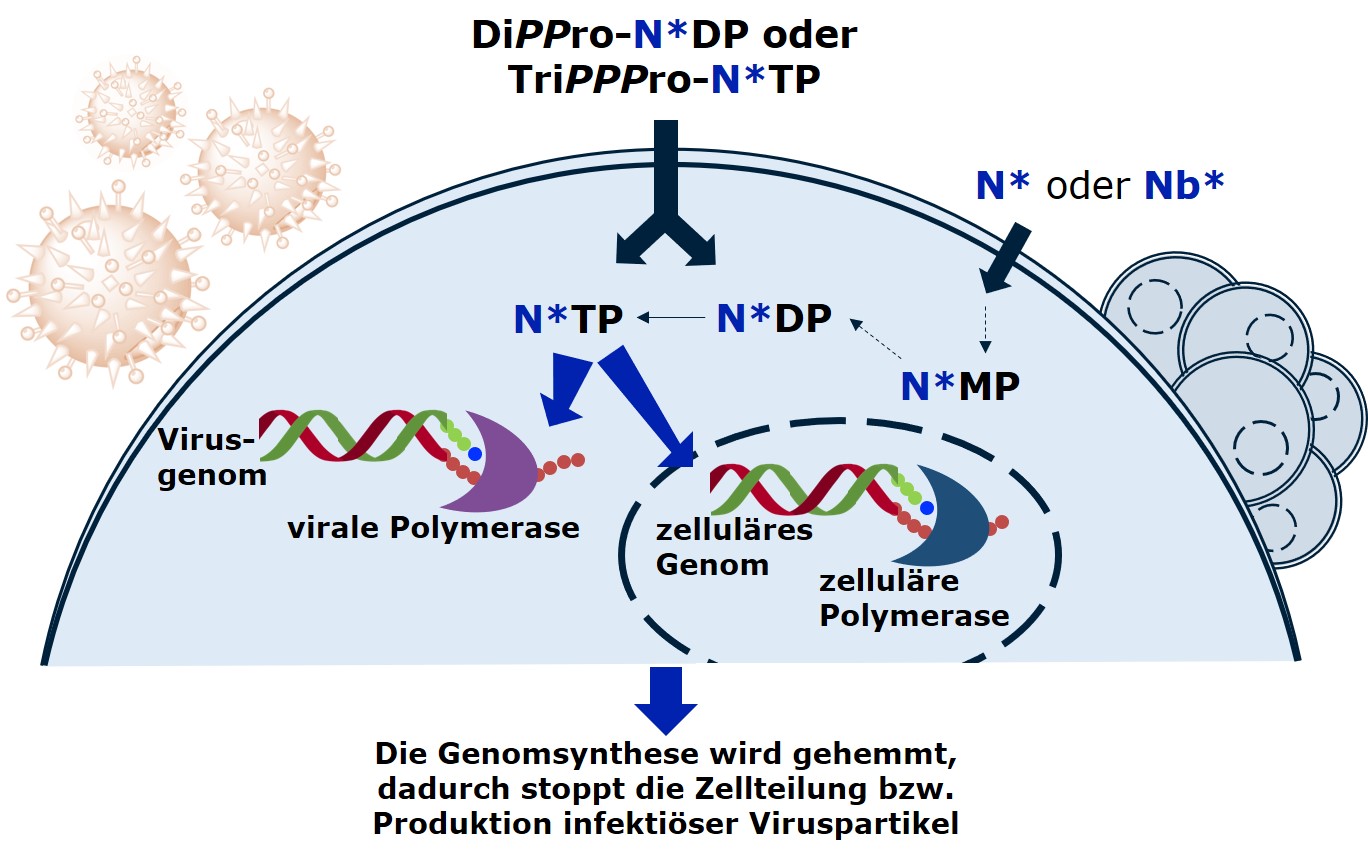Fighting Viral Infections and Cancer: Modified Nucleoside Triphosphates as Polymerase Inhibitors
For many forms of neoplastic disease, available treatment options are insufficient, making cancer the second leading cause of death worldwide with estimated 9.6 Mio deaths globally in 2018. Viral infections such as human immunodeficiency virus (HIV) and Hepatitis C virus (HCV) cause global pandemics that claim about 940,000 (HIV in 2017) or 400,000 (HCV) lives yearly, according to WHO. Moreover, the emergence and spread of viruses that cause epidemics of hemorrhagic fevers (e.g. Ebola virus disease), dengue and Zika fever, influenza (“the flu”), SARS/MERS and the 2019/2020 COVID-19 pandemic, which is caused by the zoonotic RNA virus SARS-CoV-2, call for rapid development of effective therapeutics.
In light of these devastating diseases, our focus is anti-cancer and anti-infective drug development to enhance treatment options and advance preparedness. Our research centers on cytostatic and antiviral nucleoside triphosphate analogues (N*TP), that can efficiently inhibit genome replication, thereby stopping cell growth or viral infections.
N*TP are charged molecules and hence can’t traverse cell membranes. Thus, their uncharged nucleoside analogue (N*) or nucleobase analogue (Nb*) precursors have traditionally been at the center of drug development efforts. Still, to inhibit target polymerases, N* and Nb* first have to be converted to N*TP inside cells. Host cell enzymes need to perform this metabolization consecutively from N* or Nb* via nucleoside analogue monophosphate (N*MP) and diphosphate (N*DP) to finally produce active N*TP. Unfavorable substrate properties of the analogues cause metabolic bottlenecks that restrict intracellular N*TP levels and hence limit the compounds’ potency.
Our unique DiPPro- and TriPPPro-technology (see publications) achieve to deliver N*DP or N*TP, respectively, across cell membranes. Thereby, they overcome metabolic limitations and show enhanced potency compared to N* or Nb* precursor molecules and may be able to overcome cell line dependency.
Masked Nucleoside 5'-Di and -Triphosphates: Application of the DiPPro- and TriPPPro-Technology in Therapeutic Strategies Against Viral Infections and Cancer
